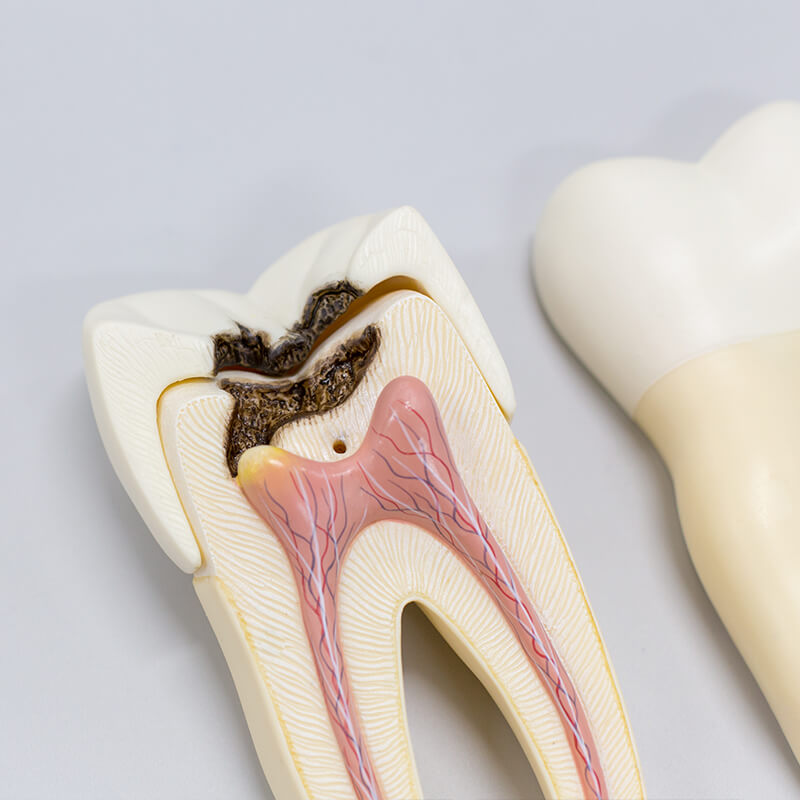ENDODONTIC RETREATMENT
Experts in endodontic retreatment
Endodontic Retreatment
Endodontic Retreatment occurs when your your tooth has not healed or has developed new problems, you have a second chance at saving your tooth. Root Canal Retreatment Therapy is that second chance.
Root Canal Retreatment: Restoring Your Tooth and Reclaiming Your Oral Health in Scarsdale
Experiencing persistent pain or discomfort after a root canal? You’re not alone. While root canal therapy boasts a high success rate, unforeseen complications can arise, necessitating root canal retreatment, also known as endodontic retreatment. At Scarsdale Endo, we understand the anxieties surrounding a failed root canal and are committed to providing expert care to restore your tooth’s health and functionality.
Understanding Root Canal Retreatment
Most teeth treated with initial root canal therapy can enjoy a lifespan comparable to natural teeth. However, if the initial treatment didn’t fully resolve the infection, or if new issues emerge, root canal retreatment offers a second chance. This procedure involves reopening the treated tooth, removing the old filling materials, thoroughly cleaning and disinfecting the root canals, and resealing them with new materials.
Why Choose Scarsdale Endo for Your Retreatment?
Our team of highly skilled endodontists at Scarsdale Endo specializes in complex endodontic retreatment procedures. We utilize advanced diagnostic tools and cutting-edge technology to pinpoint the exact cause of your root canal failure. Common reasons for retreatment include:
- Delayed Final Restorations and Compromised Seals: Waiting too long for a permanent crown or filling can allow bacteria to re-enter the treated tooth, leading to reinfection.
- Undetected or Untreated Complex Canal Anatomy: Narrow, curved, or accessory canals might be missed during the initial treatment, leaving residual bacteria.
- New Dental Problems and Traumatic Injuries: Fractures, new decay, or a dislodged crown or filling can expose the root canals to bacteria, leading to new infections.
- Calcified Canals: in some instances, canals become calcified, and are difficult to find, or clean, during initial treatment.
Our Commitment to Your Comfort and Success
We understand that dental procedures can be stressful. Our team is dedicated to providing a comfortable and reassuring environment. We use advanced anesthetic techniques to minimize discomfort during your root canal retreatment.
Our state-of-the-art technology, including digital radiography and 3D cone-beam computed tomography (CBCT), allows us to visualize the intricate anatomy of your tooth and ensure precise treatment. We employ advanced cleaning and sealing techniques to maximize the success of your endodontic retreatment.
If you’re experiencing symptoms such as persistent pain, swelling, or sensitivity after a root canal, don’t hesitate to contact Scarsdale Endo. We’re here to help you regain your oral health and confidence.
ENDODONTIC RETREATMENT Procedure
If retreatment is necessary, using a microscope, your endodontist will reopen the tooth. After extracting the filling material, the canals will be thoroughly cleaned and carefully examined to see if additional canals are present that require treatment.
Once the canals are comprehensively cleaned, your endodontist will place a temporary filling. Endodontic surgery or Apicoectomy may be necessary if the canals are very narrow or calcified.. After retreatment is completed, within two weeks, you will need to see your dentist for the final restoration. If possible, preserving your natural tooth is always the best option.
Teeth that have been restored with a filling or crown can last for years, even a lifetime. Because technological and procedural methods are always changing, your endodontist may utilize new methods that were not attainable during your initial root canal treatment. Retreatment may improve the condition of your tooth. Your endodontist will discuss your chances of successful treatment prior to the procedure.
With the appropriate care, your teeth that have had endodontic treatment will last as long as other natural teeth.

Root Canal Therapy
Root canal therapy is a way to save your natural teeth and prevent the need for dental implants or bridges. Enquire Now.

Endodontic Microsurgery

Traumatic Dental Injuries

Internal Bleaching
Internal bleaching is a technique that is used to whiten the appearance of endodontically treated teeth.

Root Canal FAQs
Dr. Jacobs and Dr. Ramesh have put together questions that they hears often from their patients.